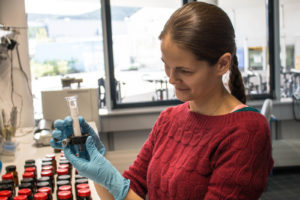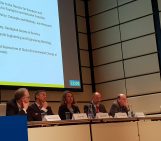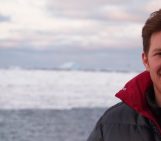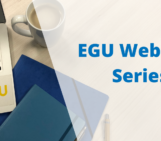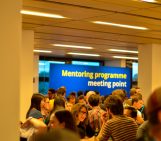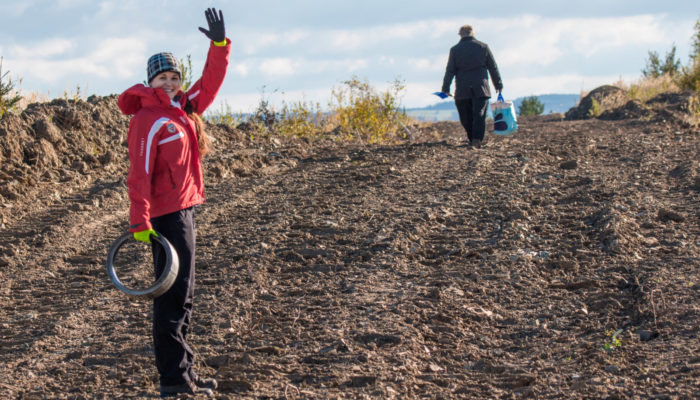
Hello Olga, thanks for speaking with us today, can you tell us a little about your background and how you got to where you are now?
Thank you for inviting me for what might be my first interview! My background is in environmental science and I chose to study soils because of how useful they are (in supporting ecosystems and our well-being) and how interdisciplinary their study is, spanning biology, chemistry, and physics. Studying soils also allows me to keep learning a bit about everything: rocks, water, climate, plants, animals, microbes – I love it all! I earned my PhD in Environmental Sciences in 2017 at Charles University in Prague (Czechia), and after working there as a research associate I spent a year at Stanford University as a Fulbright Visiting Scholar and then moved to Belgium thanks to a MSCA-funded postdoctoral fellowship at University of Antwerp.
Your research has looked at various aspects of soil carbon storage, soil formation and ecosystem restoration, and now the effect of soil fauna on soil processes. Can you explain more about your current research and why you think it is important to find out if including soil fauna in models of soil carbon turnover makes predictions better?
The evidence has been piling up on how important animals (also called ‘fauna’) in the soil are for many processes, e.g. fragmenting leaf litter, mixing the soil layers, changing how compacted or loose soils are and feeding on soil microbes. Historically however, models of soil, particularly when looking at carbon turnover, have not included either microbes or fauna in the soil, or more precisely, they have assumed these organisms are always there silently ‘doing their job’ depending on the ‘orders‘ from the environment. However, when the environment isn’t stable – the management of the soil changes, or the climate changes, or when there is a biological invasion, or with young or artificial soils – the effects of soil organisms may be partly independent of environmental orders. For example, soil carbon dynamics and other ecosystem properties change dramatically in North American forests which have been invaded by European earthworms. We can only predict such effects by having earthworms included in a model and switching them ‘on’!
Recently, more models have started to include microbes and even very recently, soil fauna too. These models become more complex and their use requires more data, so we should be always asking whether they have added value. In any case, working with these complicated soil models is a great way to test our current level of understanding of how soils function.
As well as your research, you also act as the Soil System Sciences (SSS) Division’s co-blog editor and social media manager. Why did you decide to volunteer for these positions?
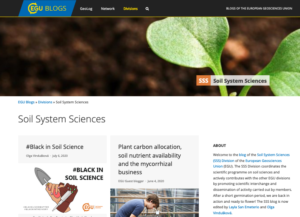
The EGU Soil System Sciences Division blogs website covers a range of subjects related to life and research as a Soil Scientist.
In general, I believe in the great importance of a welcoming and supportive scientific community – this in my eyes fuels both scientific progress but also strengthens the role of science in society. EGU provides a great platform where soil scientists can meet each other but also interact with others outside their disciplines. In addition, the EGU blogs have a great outreach potential! Volunteering to help the Soil System Sciences Division with social media and blogging felt like a natural way to contribute to both building a scientific community that I would like to be part of and to do more outreach to raise the profile of Soil Science, which sure can use it!! Reviving the EGU SSS Twitter account was the first step and later, with huge support from Layla San-Emeterio, the current Early Career Scientist SSS Representative, we restarted the blog, too.
You mentioned working with Twitter as a part of your outreach work for the SSS Division, what advice do you have for anyone else who is thinking of using a social media platform to promote their science or research?
The advice that I’d like to give is based on a hard Twitter lesson I learned this May. After a long day at work, I tweeted a ‘call’ asking for EGU award and medal nominations at 1am, only to learn the next day that I’d made a terrible mistake in using gendered language in the tweet. As soon as I woke up I fixed the mistake, but during my 8-hour sleep, that tweet went viral and understandably enraged people all around the world…
My first piece of advice would therefore be to always take great care in formulating your tweets (even though they seem short!), especially if you are a non-native English speaker and if you feel tired or under time pressure, it’s better to wait for later… EGU has a guide on inclusive language that anyone may find useful. The second piece of advice would be of course not to tweet right before going to bed…!
2020 has been a very difficult year for many people, how has the pandemic affected your experience of being an academic this year?
It has definitely not been an easy one for anybody. I was definitely not among the most affected, but the whole situation for sure added yet another level of uncertainty to the already somewhat unstable life of a person living outside their home country. Apart from the cancelled meetings, trips, postponed field and lab work, I didn’t like the isolation.
I think that the ability to easily interact with people both at your workplace and outside your work is one of the main benefits of the whole idea of living abroad, far from home and your loved ones. I saw many expats hit hard by the lockdowns, isolated and without any feasible option to visit their partners or families, stuck in an ‘all days are the same’ feeling. I was exceptionally lucky and very grateful to my supervisors here at PLECO that I could spend two months in the spring working from Prague. Other positives included meetings that I could attend only because they went virtual or that I could find some more calm periods that I could dedicate to old projects. However, I am really looking forward to going back to normal…
Thank you for sharing your story with us Olga, what is coming up next for you?
I’m looking forward to look at some of the first data measured on soils that we collected in July as a pilot study for an experiment that has been now running here in Antwerp for the second year using the FATI experimental platform. This experiment is part of a joint project of three research groups at University of Antwerp (PLECO, IMPRES and Adrem Data Lab) investigating the impacts of extended dry and wet periods on grasslands. The final harvest is scheduled for the end of October, so let’s see what 2020 does to it! Also, I’m putting together a proposal for a short course at EGU 2021 General Assembly on promoting diversity in geoscience and I have some more ideas about blogs I’d like to write. If only there was more time!!
Interview by Hazel Gibson, EGU Communications Officer.
Geotalk is a regular feature highlighting EGU’s early career researchers and their work. If you have an idea for someone you would like us to interview, please contact: communications@egu.eu

